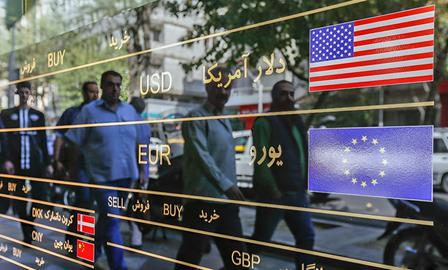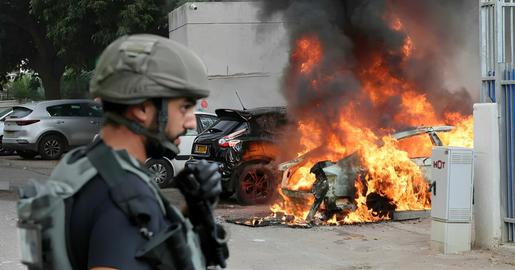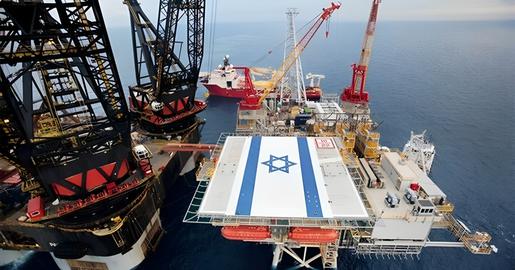Hamas’s attack on Israel and the possibility that the Islamic Republic would be blamed for it, not only for its role in equipping Hamas but also for instigating the attack and planning it, led to an increase in foreign currency prices in Iran and a decline of the stock market indices.
***
After years of sanctions, the Iranian economy does not appear to have much connection with the world. Despite the economy being mostly cut off from world economic developments, when the currency rates on display outside currency exchange shops in Tehran change, we know that something is happening inside or outside the borders of Iran.
In the shortest possible time, the same reactions were also seen in the stock market. As it has happened many times in similar situations in the past, the news of the Hamas attack rocked the currency and stock markets in Iran this time as well.
The possibility that the Islamic Republic would be blamed not only for its role in equipping Hamas but also for planning and even carrying out Hamas’ operations in Israel, were the most important initial concerns in the early days after the attack. These concerns were reflected in the relatively sharp increase in foreign currency prices and the fall of stock market indices.
The first danger was that the Islamic Republic would be directly implicated in the attack and, as a result, there were expectations that inflation would rise and a political and security crisis would unfold. During the following days these fears relatively subsided when the news came that there was no evidence for a direct involvement of the Islamic Republic in the attack.
Supreme Leader Ali Khamenei’s speech in which he denied Tehran’s implication in the assault also somehow contributed to softening the initial shock. It was as though observers had expected that he would say something different. But even though these news were effective in restoring relative calm to the markets, we must not overlook the role played by those involved in the financial markets.
In the middle of last week, amidst looming upheavals in the currency market, there were also reports of heavy intervention by the Iranian Central Bank in the market.
However, the real problem in the capital market was not the decline in the value of the total index but the fall in the overall value of the trades. Market players have been forced to go on a vacation so that, when the situation becomes more clear, they can decide what to do with the shares they control.
Aside from the effects of the psychological atmosphere created by continued fighting and related developments — which are bound to affect currency, gold and stock markets in Iran — both the Iranian and global economy are likely to be affected, directly and indirectly, by the continuation of the hostilities and the actions and positions taken by other countries in the region.
The most important issue in this regard is the effect of increased military actions on the global oil and gas market.
Israel is not an oil producer, but it has a finger in the gas market. As of now, Israel has been forced to shut down production of the Tamar gas field off its southern Mediterranean coast, a major source of gas to the country’s power generators and industry. The global gas market has already become unstable and vulnerable after the Russian invasion of Ukraine and it is not clear how long the Tamar field will remain shut down.
Furthermore, increasing tensions in the Middle East and any development related to OPEC members can further destabilize the oil market and the global energy market in general.
If the current situation turns into a broader conflict, it would cause oil prices to go up and that would affect all the economies in the world, predicted Gita Gopinath, a senior official of the International Monetary Fund, in an interview with Bloomberg on October 11.
The history of the world economy in the 20th century is full of episodes of conflicts in the Middle East that have resulted in jumps in oil prices and its unhappy consequences.
One of the most memorable oil crises was sparked by the 1973 Yom Kippur War, the fourth Arab-Israeli war, when a coalition of Arab states led by Egypt and Syria attacked Israel and major Arab oil producers led by Saudi Arabia imposed an oil embargo on countries that supported Israel. These events led to a full-fledged oil crisis which saw oil prices jump by more than 300 percent.
It is logical to assume that the consequences of a new war in the Middle East would not remain restricted to the region itself. In an analysis, Bloomberg News has put forward three scenarios for how the Israel-Hamas conflict could evolve.
In the third scenario – a direct conflict between Iran and Israel – Bloomberg estimates that the oil price would increase by $64 per barrel and global inflation by 1.2 percentage points (ppts); Global gross domestic product (GDP) would fall by 1 ppts.
The second scenario – a multifront war in Gaza, West Bank, Lebanon, Syria – would increase the price of oil by $8 per barrel, add 0.2 ppts to global inflation and reduce global GDP by 0.2 ppts.
In case the conflict remains limited to Gaza, the price of oil would increase by $4 per barrel, 0.1 ppts would be added to global inflation worldwide and global GDP would drop by 0.1 ppts.
Even before this new crisis, the world economy was beset by various crisis including, but not limited to, the lingering consequences of Covid pandemic, the effects of the Russian-Ukraine war, the Chinese-American trade war, problems caused by climate change and high inflation in most countries in the world.
All of these events, directly or indirectly, affect the Iranian economy, which is still considerably dependent on the sale of oil and petroleum products and, without economic prosperity, customers would not have much appetite to buy oil.
The Iranian economy, of course, has its own specific problems as well. If the tensions grow or continue, the risk that Iran would get involved in them grows as well. There are many politicians who are eager to find evidence of Iran’s involvement in the conflict and, even if no firm evidence is found, they can use it as an excuse to tighten and expand sanctions on Iran, which would mean a drop in the sale of oil in the coming months.
Earlier, there were reports that attributed the favorable sale of Iranian oil in the past months to the laxity in enforcing US sanctions. Now, if White House officials come under pressure from their political adversaries, they could change their approach.
In recent days, reports that the United States and Qatar have agreed not to release any of the $6 billion in Iranian oil revenues that was unfrozen as part of a prisoner swap last month are only a harbinger of what can happen to the Iranian economy as a result of the war in Gaza.
Finally, Iran's economy has been under the horrifying and dark shadow of a series of internal and external insecurity and uncertainty for years.
Sanctions have exhausted the economy and have taken away its ability to rebuild itself. Furthermore, mismanagement by planners and decision makers has brought the economy to the edge of complete ruin. In such a situation, it does not seem that the Iranian economy could deal with the risk of the country’s limited or full-scale involvement in a war.
visit the accountability section
In this section of Iran Wire, you can contact the officials and launch your campaign for various problems























comments